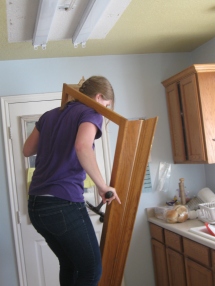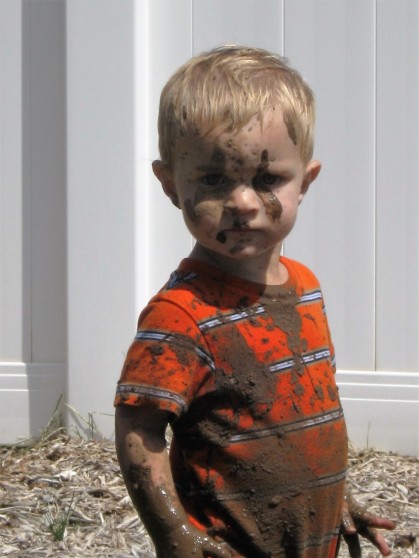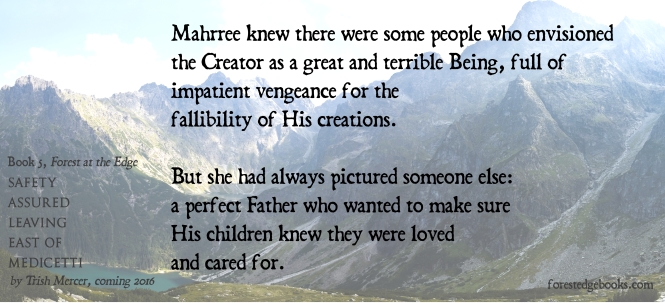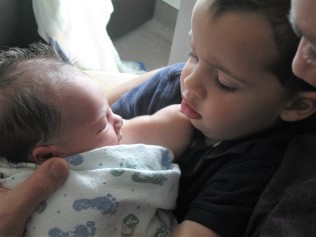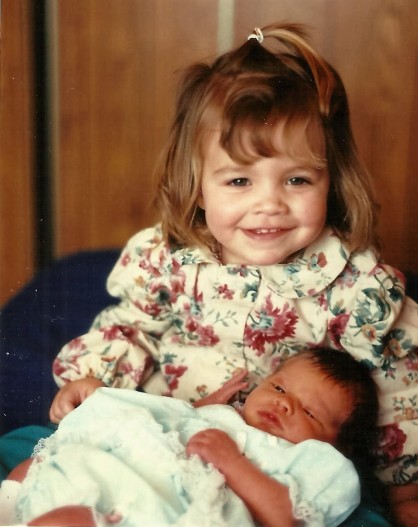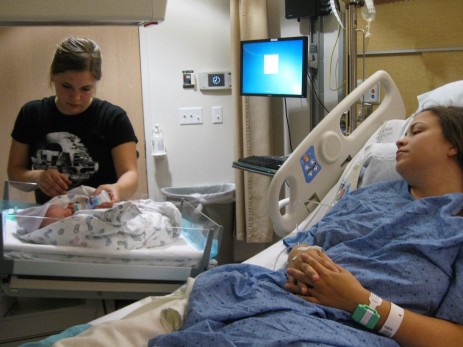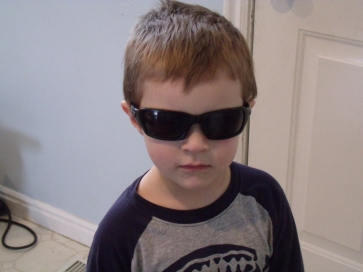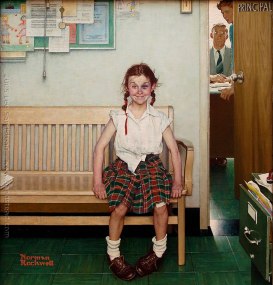Parents, I have a question: when do you show mercy and rescue a child, or when do you let them suffer with an unforgettable lesson?
How do you teach responsibility without potentially damaging your child?
That’s a quandary that plagues me nearly every day. I give you Exhibit A, my youngest daughter, age 9. Yesterday she asked blithely, “Where’s my coat?” as she was getting ready to walk to school in 17-degree weather.
That’s not what a mom wants to hear, that a coat’s missing. “Did you hang it up like you’re supposed to?” I asked, with an appropriate amount of nagging inflection.
“No,” she said, a bit indignant. “I brought it home, all wet, from playing in the snow at my friend’s house yesterday. It’s in that . . . bag . . . right . . . there.” Her voice became very quiet as she realized that house elves don’t work here, and that she hadn’t told me that her soaked coat had spent the night growing colder nowhere near the laundry room.
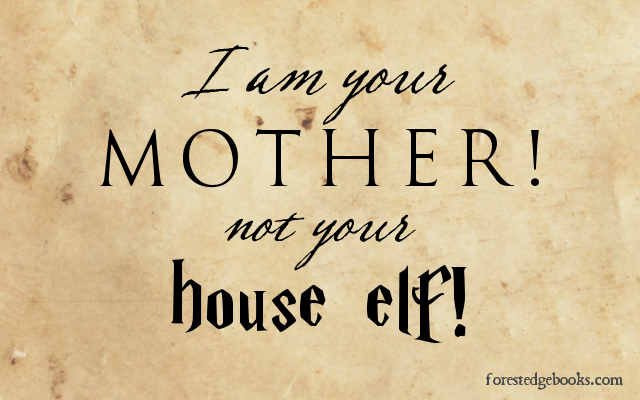
Because I was on my way out the door to take my college-aged daughter to catch her bus back to school, I hastily threw the coat into the dryer, set the timer for 25 minutes for when my youngest had to leave, and hoped for the best.
I was torn between hoping her coat would be snuggly warm for her brisk walk to school three blocks away (I usually drive her on mornings like this), and hoping it’d still be a bit wet and cold to teach that girl a lesson in responsibility.
And then I spent the next few hours wondering, What would be the best outcome?
How do you know when to rescue a child from their irresponsibility, and when to let them flounder?
Somewhere along the lines I must have done something right with my oldest daughter, Exhibit B. She is so over-the-top responsible that she’s prepared for every contingency. As a freshman in college, she had an emergency food supply while other students were trying to scavenge pizzas from dumpsters at night, and under her bed she stored dozens of bottles of water, “just in case.” And the girl never ran out of toilet paper.
Growing older has only firmed that. On New Year’s Eve last week, she came up with her two little ones so we could go shopping while grandpa babysat. As she brought in a huge overnight bag, she began to apologize. “I know—we’re staying only a few hours, and the drive is only two hours, but what if the snowstorm comes in early? What if we’re stranded here, or in the car?” She had changes of clothes for all of them, extra bottles and formula for her baby, additional cuppies for her toddler, and snacks.
But I said, “This is what moms do: anticipate disasters. Prepare for the worst. Coming to the rescue for your babies is what you’re supposed to do.”
I was pondering this rescuing attitude as I drove with my middle daughter to her bus stop. At what age should the rescuing stop? Or at least be curtailed to allow the child to find solutions themselves?
My daughter mentioned that two of her roommates had gone back to school the night before and each had texted her with the same message: “I forgot my key. When are you coming back?”
I began to scoff sadly, thinking about those poor, freezing college girls assuming that naturally someone else would be responsible enough to unlock their apartment. Someone else would save them from the predicament they chose not to prepare for . . .
Until I spun around in my seat in the van and asked my daughter, “You have your key, right?”
She smiled smugly. “Of course I do.”
Whew. Thank you, Exhibit C. (By the way, her roommates were rescued by an aunt who lived in the area and brought them to her house for the night, since the apartment mangers were out of town.)
Before I could become too prideful that I’d taught this daughter right as well–at least to remember apartment keys–I remembered that she was the one I accidently left at a Target in Roanoke, Virginia when she was six, and has never let me forget it.
(All of her siblings said she was in the van! I swear it! I went right back again to get her! And I found her with a security guard eating popcorn as she sobbed! How often do I have to apologize for being irresponsible and trusting her four older siblings who swore she was in the vehicle?!)
(She’s also the child who nearly drowned in a high mountain lake when she was 7 without me noticing, and also walked into the deep end of a neighbor’s pool when she was 6, also without me noticing. It’s a miracle she’s made it to 18.)
I realized that this child has been conditioned to expect the worst outcome, to know her mother will be too distracted to realize when she’s in trouble, and that she best take care of herself because mom’s too big of a flake to do so.
So maybe that’s a good thing, letting them flounder in deep, cold water, literally and metaphorically? Look how responsible my middle daughter became because I wasn’t.
(Ok, yeah, that’s a pretty lame argument.)
Now I have to admit that my oldest is so responsible likely not because of anything I taught her, but because we moved around so much when she was growing up, and because I leaned upon her and her sister, only two years younger, so much for assistance. My oldest daughters have become responsible out of necessity.
Survival of the most self-reliant.
So back to my youngest; when I picked up her from school in the afternoon (worried that maybe her coat had been wet, was still wet, and it was only 22 degrees outside and walking home would make her deathly ill, even though I “know” cold weather doesn’t cause a cold because my second daughter who’s a very responsible nursing student will remind me of that fact, every mother knows deep down that yes, cold weather causes colds!), she cheerfully said, “Oh, my coat was toasty warm all the way to school. You should put it in the dryer every morning.”
I didn’t know what to do with that.
Instead of being seen as the kind and thoughtful mother who came up with a solution to make sure she wasn’t cold (rescuing), or my daughter thinking that she should be more accountable and at least tell me when something needs drying and hanging up (teaching responsibility), somehow I’ve been assigned a new task in the mornings of making sure Her Highness’s coat has been adequately warmed in the dryer for half an hour (house-elving).
After being a mom for 26 years, I realize I still don’t know what I’m doing.
How irresponsible of me.
I’m open to your suggestions.


 (I love this painting,
(I love this painting, 
